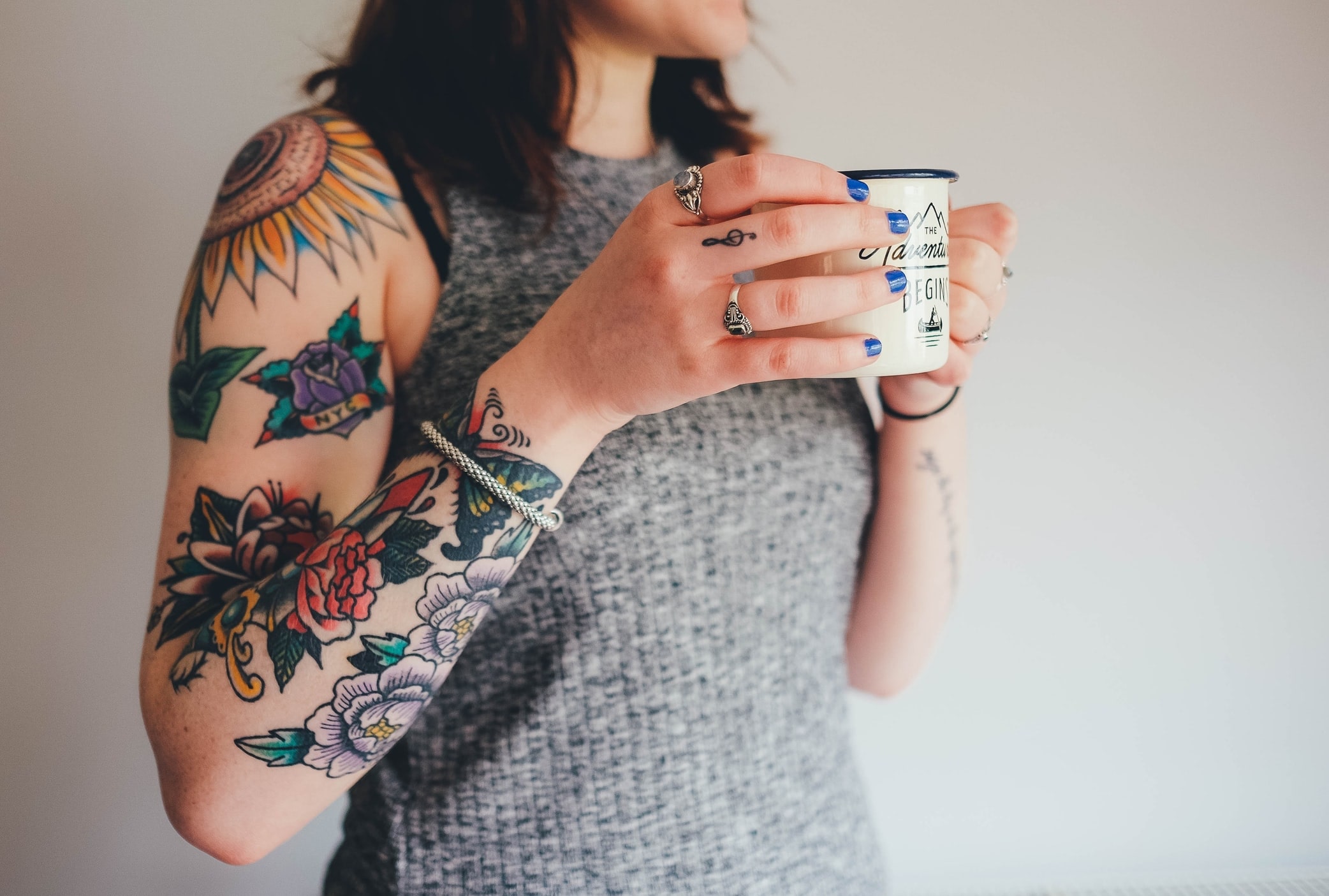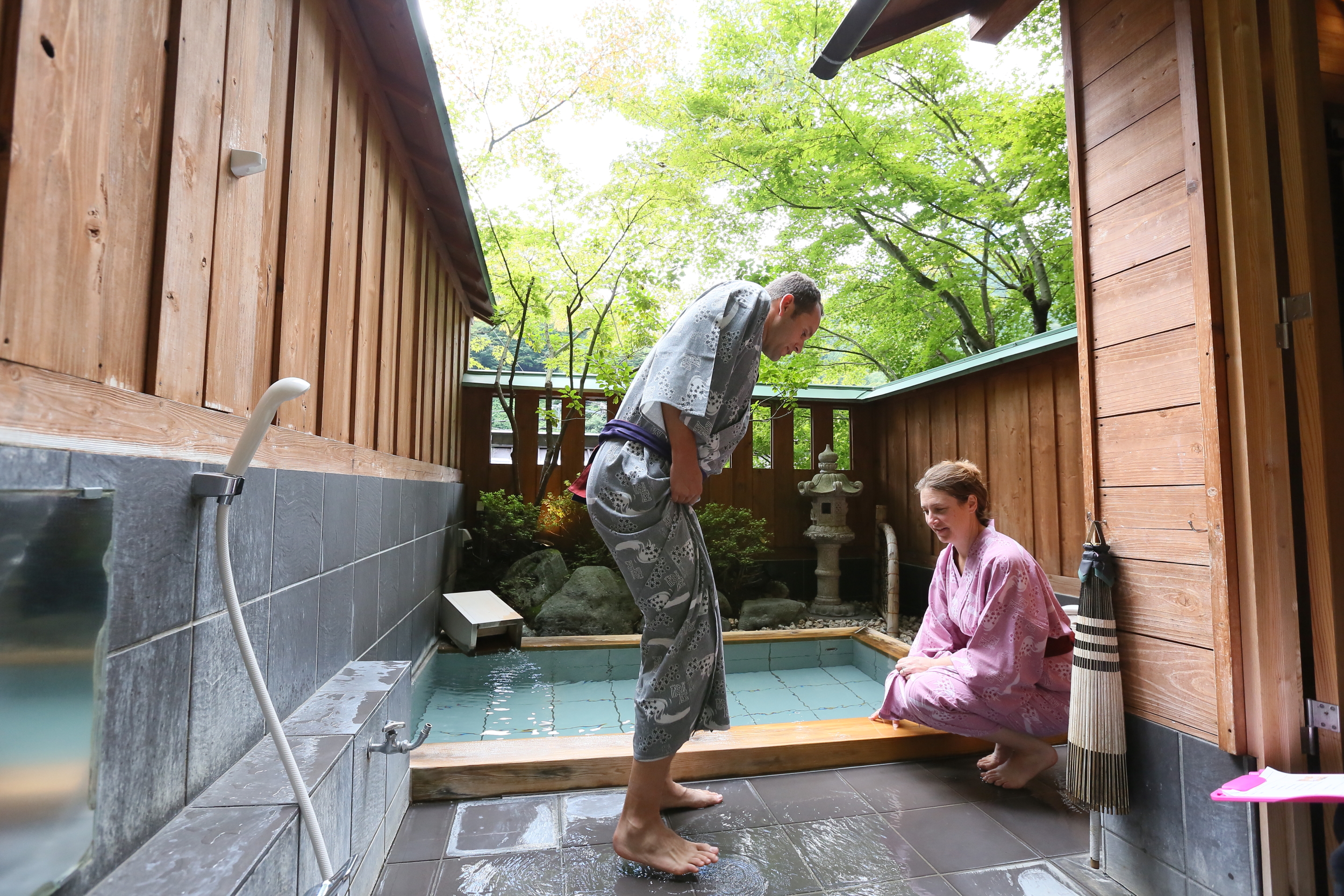Antwort Can tourists go to Japan with tattoos? Weitere Antworten – Can I visit Japan if I have tattoos

You probably won't run into any issues if you have tattoos in Japan, apart from entering an onsen, pool or gym. Some places have a tattoo ban (onsen, beaches, pools and gyms, for example), however, there are often tattoo-friendly alternatives to these places.If able to, covering any visible tattoos is highly recommended. In the past, it was easier for business owners to turn tattooed people away, whether they lived there or not.In Japan, body art is considered taboo because of its ties to the yakuza, aka the Japanese mob. While this is starting to change, some Japanese onsen, or hot springs, won't allow people with tattoos to enter. It's a way to bar yakuza without directly discriminating against them.

Are tattoos allowed in Japanese onsen : Traditionally, people with tattoos were banned from entering onsen due to the negative associations irezumi (the Japanese word for tattoo) have with criminality and gang affiliations. However, today there are now more and more onsen facilities declaring themselves 'tattoo-friendly'.
Why aren t tattoos allowed in onsen
This social aspect, however, led many onsen and sento to prohibit tattooed guests. The Japanese taboo toward tattoos stems from their association with members of Japanese organized crime. Gangsters in Japan are typically heavily tattooed, and body art in Japan came to be associated with unsavory characters.
Are tattoos accepted in Korea : While some of the younger generations of Korea are just beginning to explore tattoo body art, the vast majority of Korean culture still views tattoos as taboo, gang symbols, and enough to “ruin” someone. The only people in South Korea with tattoos seem to be artistic types, gangsters, and foreigners.
This social aspect, however, led many onsen and sento to prohibit tattooed guests. The Japanese taboo toward tattoos stems from their association with members of Japanese organized crime. Gangsters in Japan are typically heavily tattooed, and body art in Japan came to be associated with unsavory characters.

In Japan, having a tattoo can certainly be “deeply discrediting,” since tattooed skin may be viewed as an intentional mark of affiliation with antisocial or criminal elements (and thus disaffiliation with conventional society), often resulting in fright and discomfort among those who are not tattooed when visible.
What are the rules of Japanese tattoos
yet essential rules:
- Rule One: Your tattoo should be large, covering a broad area or entire body part. It should.
- Rule Two: Your traditional Japanese tattoo should include themes and symbols representing. Japanese culture.
- Rule Three: Most crucially, your tattoo design and application should only, or mostly, be.
This social aspect, however, led many onsen and sento to prohibit tattooed guests. The Japanese taboo toward tattoos stems from their association with members of Japanese organized crime. Gangsters in Japan are typically heavily tattooed, and body art in Japan came to be associated with unsavory characters.Besides booking yourself a private onsen (which can be costly), you can purchase body stickers and skin-coloured patches to conceal your body art.

Tattoos are essentially open wounds, and exposing them to water too soon can lead to bacterial infections, skin irritation, and even damage to the tattoo design. Therefore, tattoo artists recommend waiting at least 2-4 weeks before submerging your new ink in swimming pools, hot tubs, or open water.
How strict are onsens with tattoos : Some onsen will welcome you but simply issue you with skin-coloured patches to stick on, covering up any potentially offending ink. If you are using an onsen which is part of a ryokan (traditional inn) then there is probably less chance that others would see your tattoos – unless the ryokan is a very large modern one.
Should I cover my tattoos in Korea : Tattooing in South Korea is not 100 percent illegal, nor is it illegal to have a tattoo. While certain establishments and institutions reserve the right to make patrons cover tattoos, there are no legal penalties for sporting tattoos in public.
How do Koreans feel about tattoos
In the past, tattoos were viewed as mutilation, or a mark of punishment or ownership. Under Japanese occupation, Korean gangs adopted the aesthetics of the yakuza, using tattoos as markers of gang identification. Older Koreans in particular find it difficult to escape these legal and cultural connotations.

Restricting tattooed guests from bathing would make it impossible for much of the global population to experience this vital part of Japanese nature and culture. Today, having a tattoo will not prevent you from experiencing an onsen or sento.Since the 1990s, as tattooing in Japan is readily associated with the national mafia, some establishments and signs prohibit access to anyone with a tattoo to screen potential criminals. Unfortunately, these decisions also impact both Japanese people and foreigners who have tattoos without any connection to the yakuza.
Why can’t you swim in Japan with tattoos : This is because there is recognition in Japan from historical background that tattoo, so-called Irezumi in Japan, is “something anti-social people get” or “something members of illegal organization such as gangsters get.”

![csm_2405-bauerfeind-produktkategoriesseiten-bandagen-ellenbogenbandage-2560x1400_88-1_f91f66009c[1]](https://www.nakajimamegumi.com/wp-content/uploads/2024/06/csm_2405-bauerfeind-produktkategoriesseiten-bandagen-ellenbogenbandage-2560x1400_88-1_f91f66009c1-1024x521-65x65.jpg)
![Ischiasschmerzen[1]](https://www.nakajimamegumi.com/wp-content/uploads/2024/06/Ischiasschmerzen1-1024x640-65x65.jpg)
![csm_blogbeitrag_autoimmunerkrankung_d307ac8b72[1]](https://www.nakajimamegumi.com/wp-content/uploads/2024/06/csm_blogbeitrag_autoimmunerkrankung_d307ac8b721-1024x576-65x65.jpeg)